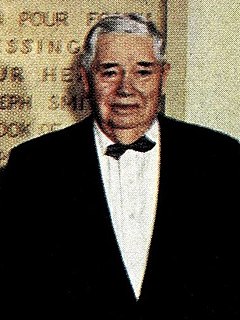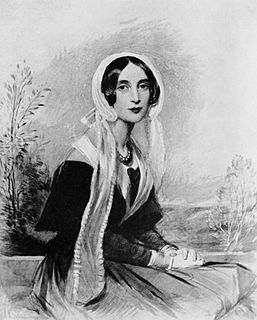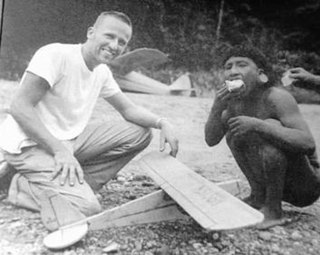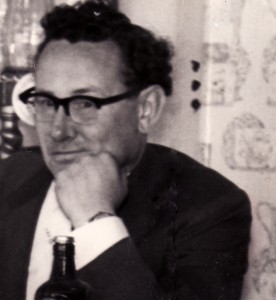A Quote by J. C. Ryle
If Christ had not gone to the cross and suffered in our stead, the just for the unjust, there would not have been a spark of hope for us. There would have been a mighty gulf between ourselves and God, which no man ever could have passed.
Related Quotes
I am persuaded, from all the facts that have come to me, that it would have been possible, if we had functioned as the Lord intended us to function, if we had paid our tithes and our offerings as the Lord intended us to pay them, we might have gone on without one dollar from our federal government. And has it ever occurred to you what a mighty influence we should have exercised for good and for respect and for all of the virtues that we have been taught, and that God has commanded us to exercise and cultivate and practice, if we had just followed along what he has asked us to do?
We do not have to make ourselves suffer in order to merit forgiveness. We simply receive the forgiveness earned by Christ. 1 John 1:9 says that God forgives us because He is ‘just.’ That is a remarkable statement. It would be unjust of God to ever deny us forgiveness, because Jesus earned our acceptance! In religion we earn our forgiveness with our repentance, but in the gospel we just receive it.
When I read or hear of the mutual injuries of England and Ireland, I fancy it would have been a blessed thing had the sea never flowed between the two countries. Had they been all in one, surely there would have been more unity between them of interests and of feelings. But let us hope that days of peace and general enlightenment will arrive by ways past man's finding out.
Christ became our Brother in order to help us. Through him our brother has become Christ for us in the power and authority of the commission Christ has given him. Our brother stands before us the sign of the truth and the grace of God. He has been given to us to help us. He hears the confession of our sins in Christ's stead and he forgives our sins in Christ's name. He keeps the secret of our confession as God keeps it. When I go to my brother to confess, I am going to God.
When Jesus died on the cross the mercy of God did not become any greater. It could not become any greater, for it was already infinite. We get the odd notion that God is showing mercy because Jesus died. No--Jesus died because God is showing mercy. It was the mercy of God that gave us Calvary, not Calvary that gave us mercy. If God had not been merciful there would have been no incarnation, no babe in the manger, no man on a cross and no open tomb.
I candidly confess that I have ever looked on Cuba as the most interesting addition which could ever be made to our system of States. The control which, with Florida, this island would give us over the Gulf of Mexico, and the countries and isthmus bordering on it, as well as all those whose waters flow into it, would fill up the measure of our political well-being.
Though we are commanded to 'wash ourselves', to 'cleanse ourselves from sins', to 'purge ourselves from all our iniquities', yet to imagine that we can do these things by our own efforts is to trample on the cross and grace of Jesus Christ. Whatever God works in us by his grace, he commands us to do as our duty. God works all in us and by us.
If God would grant us the vision, the word sacrifice would disappear from our lips and thoughts; we would hate the things that seem now so dear to us; our lives would suddenly be too short, we would despise time-robbing distractions and charge the enemy with all our energies in the name of Christ. May God help us ourselves by the eternities that separate the Aucas from a Comprehension of Christmas and Him, who, though he was rich, yet for our sakes became poor so that we might, through his poverty, be made rich.
Accommodation is a central aspect of the cross-centered interpretation of violent portraits of God that I'm advocating. Like everything else in Cross Vision, this concept is anchored in the cross. On the cross, God stoops to meet us, and to enter into solidarity with us, right where we are at, which is in bondage to sin and to Satan. And he does this to free us and to bring us where he wants us to be, which is united with him in Christ. The cross is thus the paradigmatic example of God mercifully stooping to accommodate people in their fallen conditioning.
We must be ready to allow ourselves to be interrupted by God, who will thwart our plans and frustrate our ways time and again, even daily, by sending people across our path with their demands and requests. We can, then, pass them by, preoccupied with our important daily tasks, just as the priest-perhaps reading the Bible-passed by the man who had fallen among robbers. When we do that, we pass by the visible sign of the Cross raised in our lives to show us that God’s way, and not our own, is what counts.
I was remembering the things we had done together, the times we had had. It would have been pleasant to preserve that comradeship in the days that came after. Pleasant, but alas, impossible. That which had brought us together had gone, and now our paths diverged, according to our natures and needs. We would meet again, from time to time, but always a little more as strangers; until perhaps at last, as old men with only memories left, we could sit together and try to share them.




































